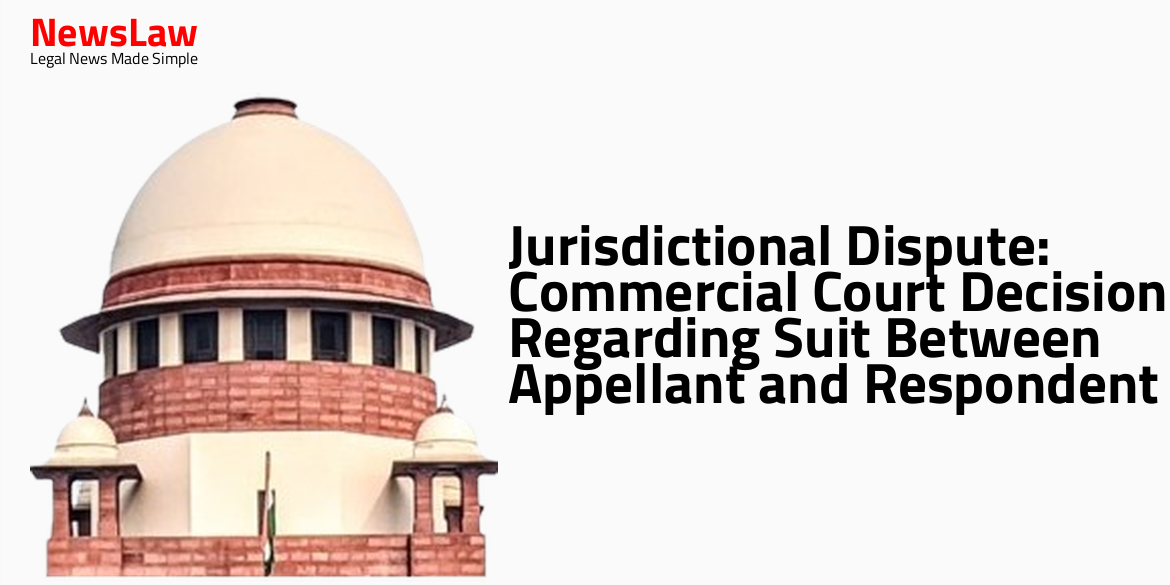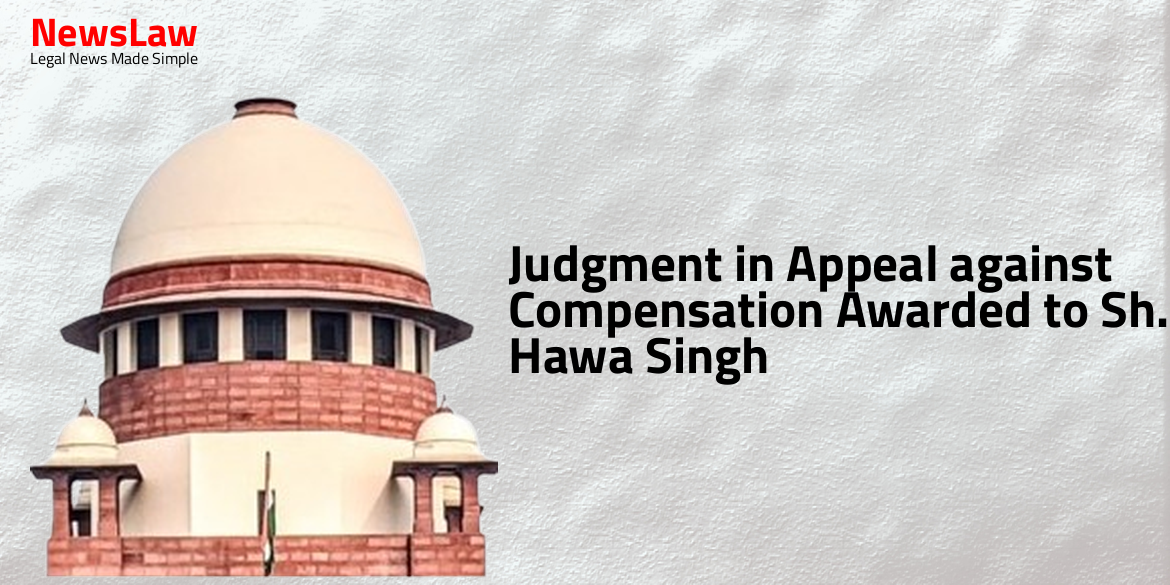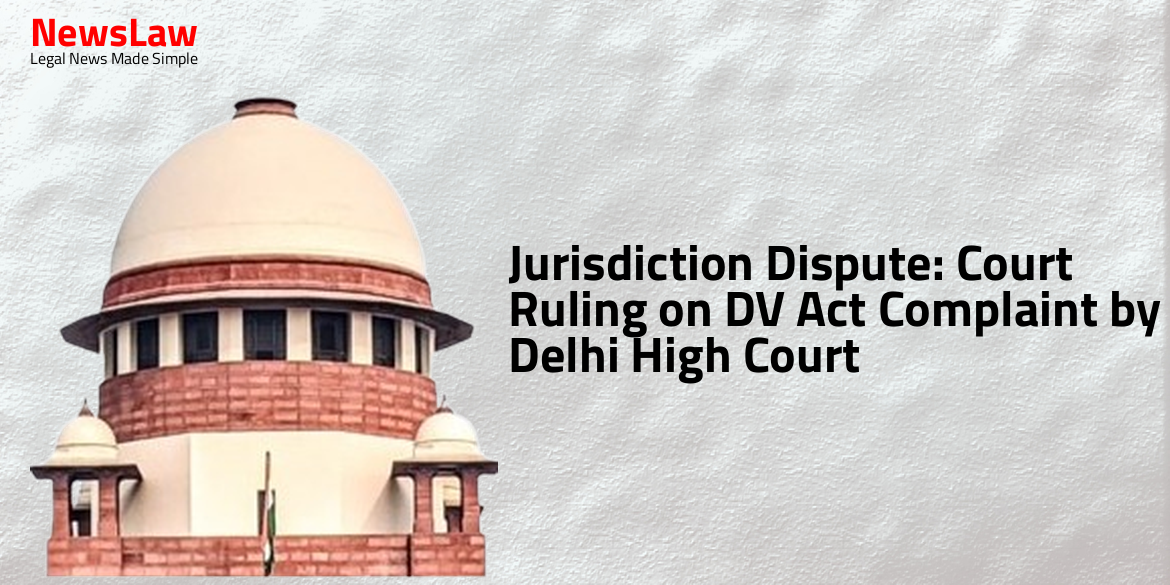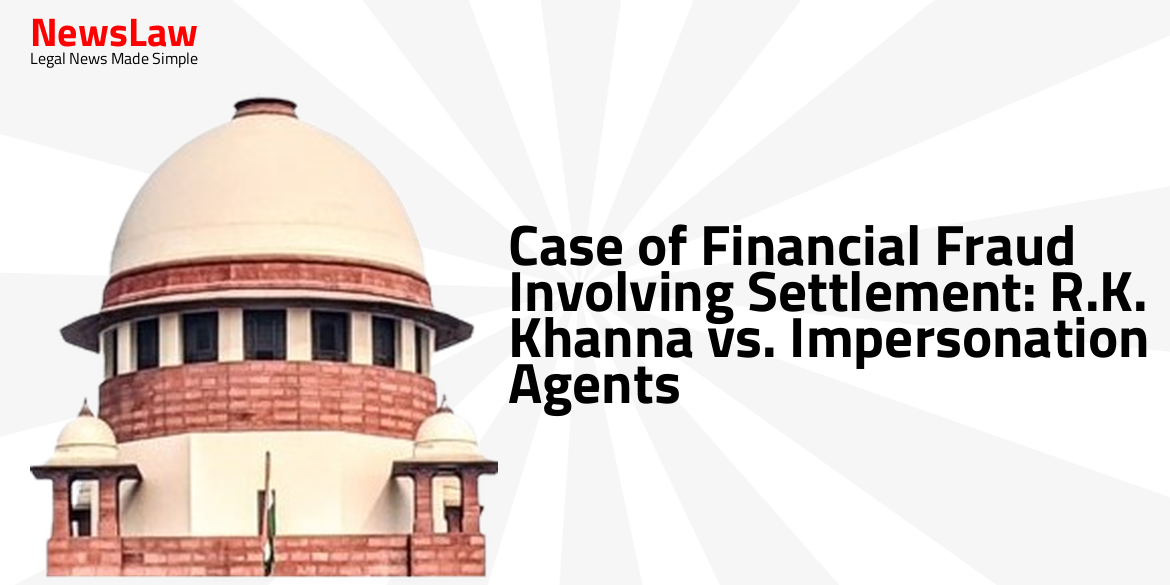A recent judgment by the Delhi High Court shed light on a jurisdictional dispute in a commercial case involving the parties in question. The Court deliberated on the appropriate jurisdiction for a suit between the two parties, ultimately ruling in favor of the respondent’s contention. The decision has implications for future commercial disputes in the region. Read on to understand the complexities of this legal case and its impact on jurisdictional matters.
Facts
- The appellant filed a complaint under Section 138 of the Negotiable Instruments Act, 1881 against the respondent at Ludhiana, Punjab for the dishonour of a cheque.
- The registered office of the appellant is in Ahmedabad, Gujarat, while the goods were dispatched from the branch office in Andhra Pradesh to the respondent.
- The respondent’s workplace is located in Telangana, which was then within the State of Andhra Pradesh.
- The cheques issued by the respondent were dishonoured by the appellant’s bank, State Bank of India in Hyderabad.
- The Statement of Accounts for the transaction was maintained by the appellant at their registered office in Ahmedabad, Gujarat.
- Funds for the transaction were received in the running account in the State of Andhra Pradesh.
- Invoices for the materials supplied to the respondent were provided and examined, showing that goods were supplied through the corporate/branch office in Hyderabad.
Arguments
- Commercial Court accepted the contention that the appropriate Court for filing the suit would be the Court in the State of Telangana having jurisdiction to try the suit.
Analysis
- The Court referred to the relevant provisions of the CPC
- It was stated that the Court did not have jurisdiction to entertain the suit
- No cause of action had arisen within the territorial jurisdiction of the Commercial Court
- The appellant in the plaint has pleaded that the respondent acknowledged an outstanding amount in a letter and visited the appellant’s office in Delhi to settle the account.
- The appellant asserts that the cause of action arose in Delhi based on the acknowledgments and promises made by the respondent.
- The appellant claims that discussions and negotiations for supply of goods were finalized at the corporate office in Delhi.
- The Customer Appointment Form was executed at the Delhi office as per the appellant’s claim.
- Subsequent discussions and settlements also took place in Delhi according to the appellant.
- The appellant argues that all payments were made or agreed to be made at the Delhi office.
- Despite the appellant’s contentions, the respondent disputes several of these claims including the execution of the Customer Appointment Form in Hyderabad.
- The Commercial Court’s finding that no part of the cause of action arose in Delhi was based on the respondent’s application disputing the appellant’s claims.
- The appellant maintains that purchase orders were placed, discussions were held, and payments were made in Delhi.
- The appellant highlights that invoices explicitly stated that disputes would be subject to Delhi jurisdiction.
- The decision of the Supreme Court in Indian Performing Rights Society Ltd. v. Sanjay Dalia & Anr. and the decision of this Court in Ultra Home Construction Pvt. Ltd. v. Purushottam Kumar Chaubey & Ors. are misplaced as they were rendered in the context of the Trade Marks Act, 1999 and the Copyright Act, 1957.
- The decisions referred to were in the context of the Trade Marks Act, 1991 and the Copyright Act, 1957, which also allows the suit to be filed where the plaintiff’s office is located.
- The Commercial Court also considered the Supreme Court’s decision in Indian Performing Rights Society Ltd. v. Sanjay Dalia & Anr. and the Coordinate Bench of this Court’s decision in Ultra Home Construction Pvt. Ltd. v. Purushottam Kumar Chaubey & accepted the averments in the plaint as correct.
- The court determined its territorial jurisdiction based on the discussions and negotiations between the parties for the supply of goods, which were conducted and finalized at the Plaintiff Company’s corporate office in Wazirpur, Delhi.
- The appellant’s action is for recovery of amounts for goods supplied, not for infringement of any Intellectual Property Right.
- The circumstances of the case do not align with cases involving Intellectual Property Right infringement.
- The appellant is seeking redress for non-payment, not violation of intellectual property laws.
Decision
- The Court has reserved its opinion on the merits of the respondent’s case
- The respondent is not precluded from filing an appropriate application
- Contentions of the parties are reserved for further consideration
- Next appearance before the Commercial Court is scheduled for 19.05.2024
Case Title: CRYSTAL CROP PROTECTION LIMITED Vs. RANGA KRISHNA MURTHY (2024:DHC:3628-DB)
Case Number: FAO (COMM)-2/2024



